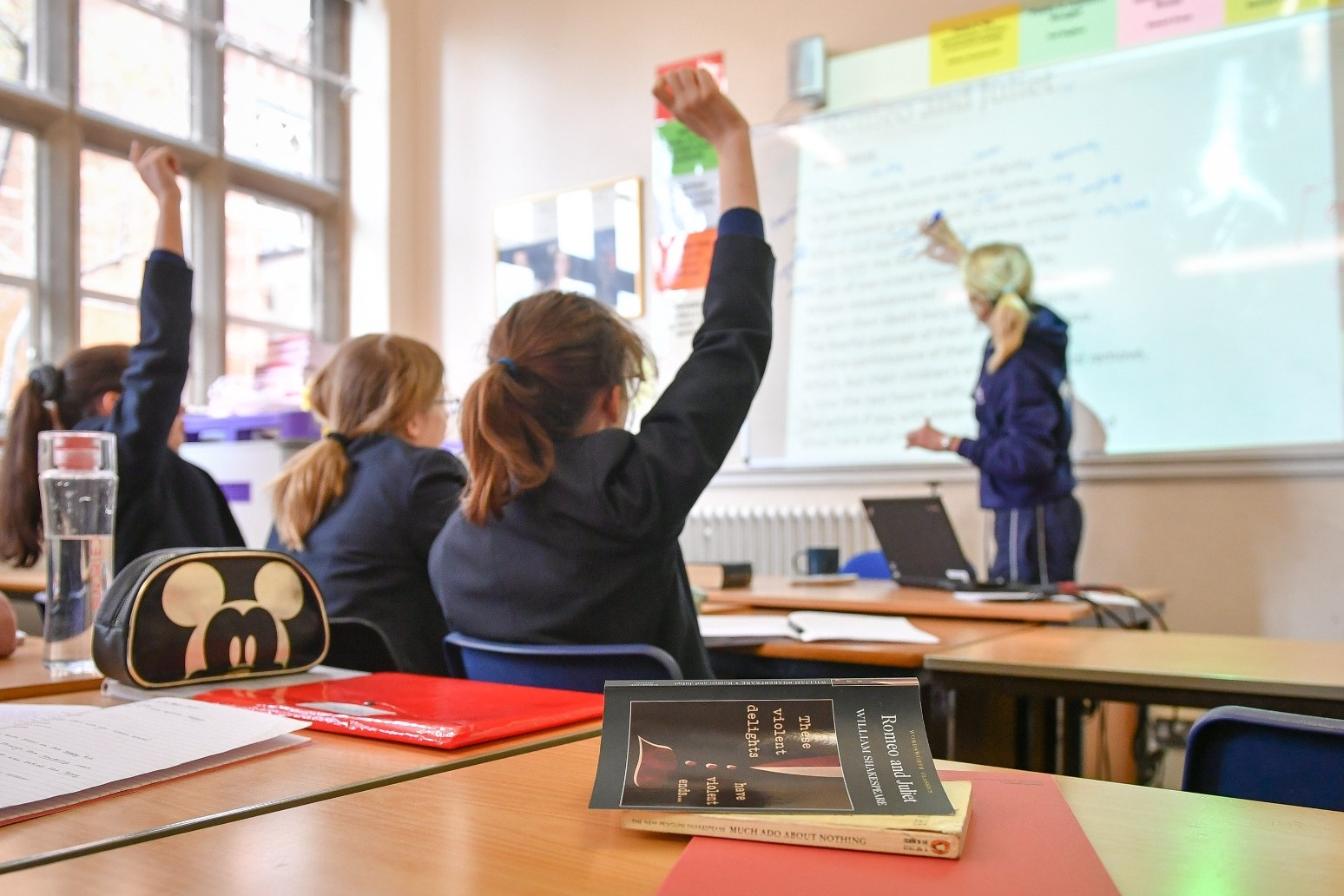
Offering more bursaries to trainee teachers can help with recruitment challenges, a report has suggested.
High bursaries for shortage subjects, such as physics, are effective and should be retained to tackle teacher shortages, according to a report by the National Foundation for Educational Research (NFER).
Increasing bursaries to boost teacher numbers is particularly cost effective where bursaries for a subject are currently low, the analysis said.
It found that teachers who enter the profession due to bursary increases have an impact on long-term supply as they are just as likely to stay in teaching.
Figures released by the Department for Education (DfE) last December revealed that just 59% of its target for secondary subject trainees was reached in 2022-23, down from 79% in 2021-22.
The NFER report suggested that currently a starting cohort of 100 teacher trainees will translate, through attrition, into 41 teachers that stay beyond their fifth year in teaching.
However, a £5,000 bursary increase, with all else being equal, leads to 47 teachers staying beyond their fifth year in teaching.
The DfE is currently offering £28,000 bursaries for those training to teach chemistry, computing, mathematics and physics for 2024/25.
It is also offering £25,000 teacher training bursaries in biology, design and technology, geography and languages, and £10,000 in art and design, English, music and religious education.
The NFER report has called on the Government to continue raising bursaries for subjects experiencing supply challenges and where bursaries are low, and to maintain high bursaries for maths, physics, chemistry and computing – raising them over time with the level of the teaching starting salary.
Jack Worth, school workforce lead at NFER and co-author of the report, said: “Our evidence shows bursary spending offers good value for money because it can be targeted at priority subjects and at prospective teachers, whose behaviour tends to be highly responsive to financial incentives.
“The findings show bursaries are one of a range of effective financial tools available to policymakers to tackle recruitment and retention issues.
“The current severe shortage of teachers across many subject areas and tight public finances means that cost effective policy measures are needed to support the teacher pipeline wherever possible.”
Geoff Barton, general secretary of the Association of School and College Leaders, said: “The Government cannot afford to bank on bursaries and other targeted payments to patch up a broken system.
“It must address the underlying problem of inadequate teacher pay and excessive systemic workload and it must ensure that schools have the funding they need to pay their staff.”
A DfE spokeswoman said: “We welcome the findings from the National Foundation for Educational Research that teacher training bursaries are having a positive impact on the recruitment of new teachers.
“There are now record numbers of teachers in our schools, up by 27,000 since 2010, which has been achieved through a range of initiatives to attract the best candidates into teaching, including tax-free bursaries and scholarships worth up to £30,000.
“Teachers will get a 6.5% pay award beginning in September and starting salaries are now at least £30,000, which recognises the hard work of teachers and leaders.”
Published: by Radio NewsHub







